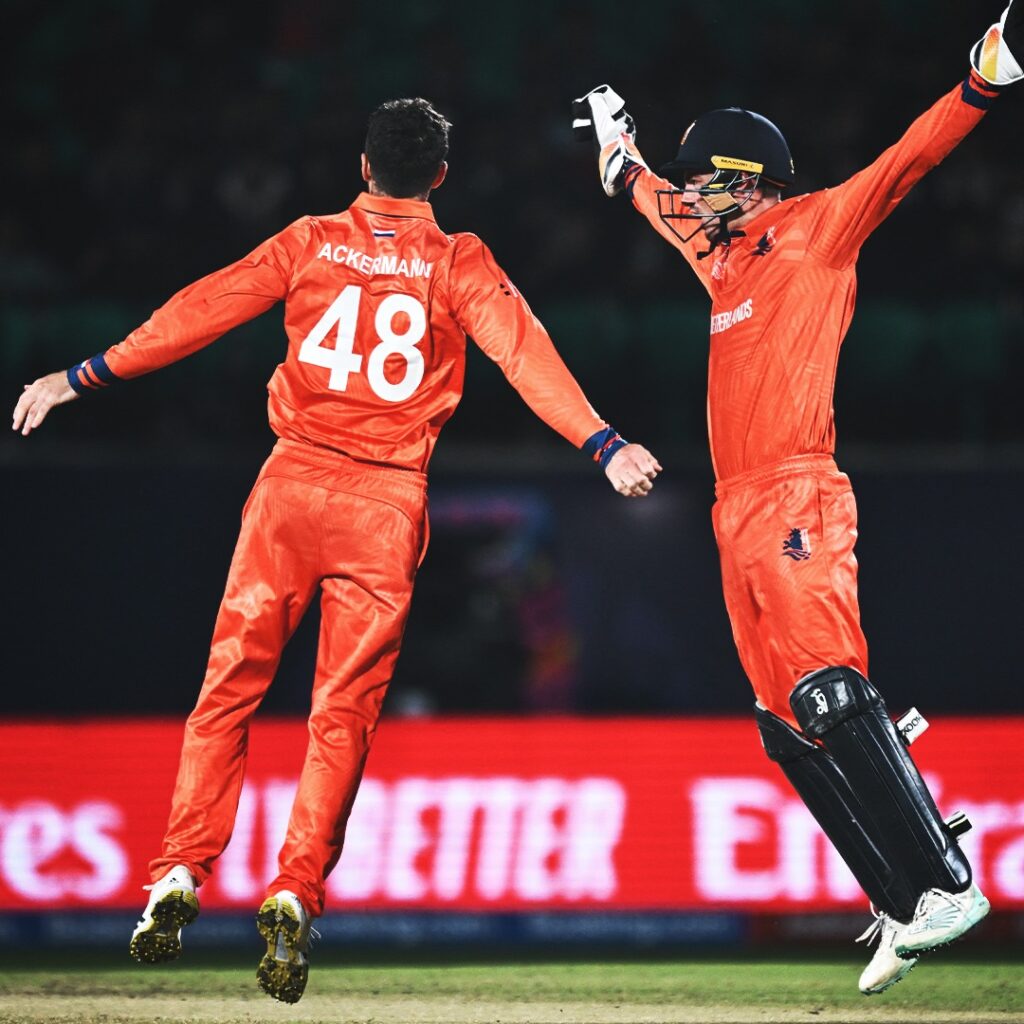
RevSportz Comments
At the delayed toss in Dharamsala, Scott Edwards was asked about the Netherlands’ two displays so far. Or rather, he was told that he was to be pretty pleased with his side having crossed 200 in both games. You could almost see the grimace on his face before he answered. For anyone listening, the subtext was clear. The Netherlands were in India only to make up the numbers, and cricket’s grandees — India, England, Australia and other established nations — were doing them a favour by letting them be part of the same stage.
Edwards and the Netherlands, and all those associate nations that they proudly represent here, are used to such condescension. But that doesn’t make it right. Yes, there are only three players with professional contracts in the Netherlands. The rest have to juggle playing with other responsibilities. But they aren’t in the World Cup after winning some lottery ticket. They qualified by ousting teams like West Indies, Scotland and Ireland, all of whom have played in World Cups after the last Dutch appearance in 2011.
That World Cup, the last to be held in India, saw Ireland chase down a target of 328 against England, with Kevin O’Brien scoring a 50-ball century, then a World Cup record. But instead of embracing new faces, world cricket shut up shop. By 2019, the ‘World Cup’ was whittled down to 10 teams. Football has had 32 since 1998, and the ongoing Rugby World Cup has 20.
It’s not just that. The Netherlands played their first World Cup in 1996, nearly three decades ago. Since then, how many matches have they played against England, India and Australia? There have been just 10, of which only three against England in Amstelveen last year have come outside the World Cup tent. The players spend most of their careers playing against other Associate teams, with no opportunity to test themselves against the world’s best. And then they’re expected to be competitive in World Cups.
What the Netherlands did was simply ridiculous. At 82 for 5, nearly midway through their 43-over innings, they were going nowhere. The quartet of Marco Jansen, Lungi Ngidi, Gerald Coetzee and Kagiso Rabada had put the top order through the wringer, and Vikramjeet Singh’s struggle to eke out two off 16 balls epitomised the Netherlands’ helplessness. Given the form South Africa had shown in dismantling Australia, you expected the innings to be wrapped up well before time.
Instead, Scott Edwards, the Tonga-born skipper who surely needs to be batting higher than No. 7, played himself in, and found valuable allies in Teja Nidamanuru, Logan van Beek and Roelof van der Merwe. And as much as the headlines will be about Edwards and an innings comparable to Kapil Dev’s Tunbridge Wells epic in 1983, it was Van der Merwe who set the tone for the late defiance by giving it some humpty pretty much from the first ball he faced.
He may be almost 39, but the energy and determination he showed was infectious. Van der Merwe played the first of his 13 ODIs for South Africa in April 2009, and was discarded from the squad in the build-up to the 2011 World Cup. The sight of the shirt he once wore seemed to fire him up, and he was everywhere, breaking through early with the ball and flinging himself around in the field.
Till now, if you asked anyone about the Netherlands and World Cups, the only thing they could probably come up would have been Herschelle Gibbs slamming Daan van Bunge for six sixes in an over in 2007. Edwards, Van der Merwe and an incredible team effort ensured that that narrative has been flipped on its head. You can call them minnows, damn them with faint praise, and whinge about too many one-sided matches. But in the shadow of the Himalayas, which stand as a warning against human vanity and hubris, Edwards and a team brimful of belief, purpose and skill showed that they’re here to play.



